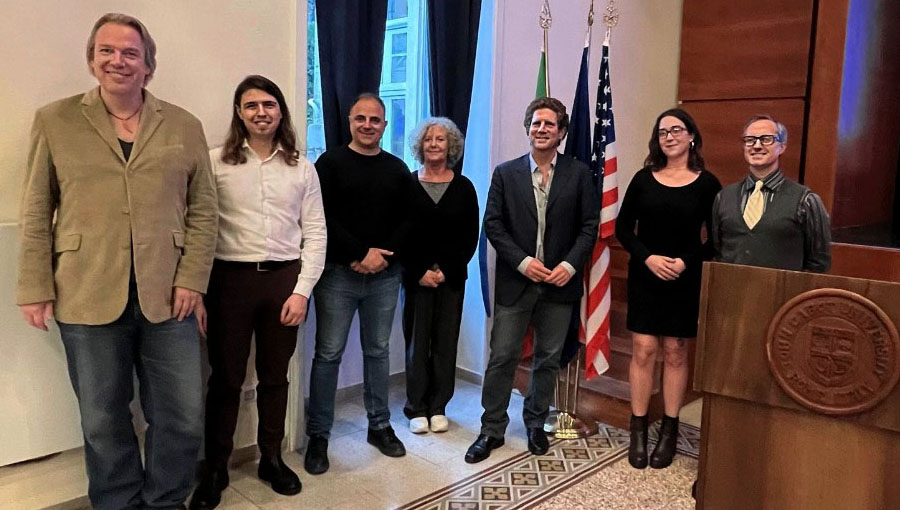12th JCU Posthuman Studies Workshop Reflects on Ethics of Cyborgs and Robots
On October 19th, 2024, John Cabot University hosted the 12th JCU Posthuman Studies Workshop. The event, titled “Ethics of Cyborgs, Robots, and the Posthuman: Reflections from Ancient Greece and Rome to the Present Day,” was sponsored by JCU’s Department of History and Humanities and featured a lively audience of scholars, researchers, and students.
The workshop, organized by JCU Philosophy Professor Stefan Lorenz Sorgner, consisted of a series of lectures that explored the ethical questions arising from humanity’s increasing integration with technology, from artificial intelligence and robotics to cyborg enhancements. The event offered an interdisciplinary discourse, linking ancient philosophical musings with contemporary technological debates. Each talk provided a distinct lens through which to examine the ethical challenges of our technologically- driven future.

JCU Professor of Classics, Massimo Betello, explored the parallels between ancient myths and modern concepts of sex robots and artificial wombs, highlighting society’s enduring fascination with life creation and control. Philosophy Professor Alessandro Stavru (University of Verona), warned against technological hubris through the myths of Prometheus and Daedalus, while Professor Gitanjaly Chhabra (University Canada West), traced the evolution of artificial beings from Galatea to Digital Galatea. Fabrizio Conti, history professor at John Cabot University, delivered an insightful talk titled “The Universal Man of the Renaissance: An Anthropological Revolution,” exploring the transformative impact of Renaissance ideals on human self-perception and the cultural shifts that redefined humanity’s role in the world. Professor Raffaela Giovagnoli (Pontifical Lateran University) critiqued Transhumanism, positioning AI as a tool for integration rather than replacement. Philosopher Andrei Nutas (West University of Timișoara), expanded on Euro-Transhumanism’s naturalist stance. Professor Sorgner provided additional insights on the cultural positioning of Euro-Transhumanism. JCU Humanistic Studies student, Rachel Cramer, concluded the series by examining the tension between authenticity and technological acceleration, inviting the audience to reflect on identity in a fast-paced world.
The 12th JCU Posthuman Studies Workshop fostered an interdisciplinary conversation, drawing from insights of the past to address the pressing ethical challenges of our technological present and future. “Attendees had the chance to reflect on the timeless wisdom from antiquity and the cutting-edge developments of today. There was a shared conviction that humanity’s future, while uncertain, will be shaped by thoughtful, ethical consideration and scholarly foresight,” said Professor Sorgner.





